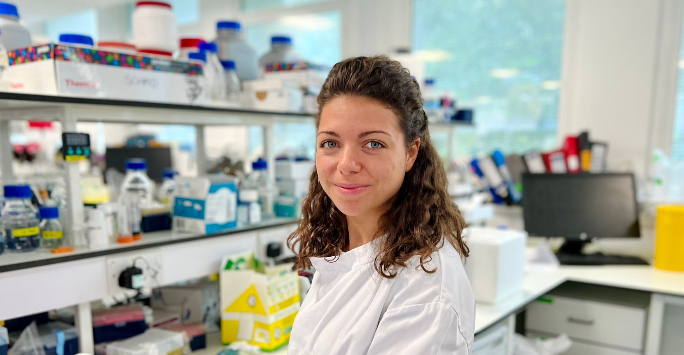
Gaia Bellomo is a PhD student in the Department of Molecular and Clinical Cancer Medicine in the Institute of Systems, Molecular and Integrative Biology. She recently attended a workshop at the Cancer Research UK Beatson Institute in Glasgow and told us all about her research and the trip.
My research
I joined the Schmid Lab in November 2019 as a PhD student; since then, I have been studying the ‘metastatic tumour microenvironment in PDAC liver metastasis’. In particular, my research focuses on whether and how chemotherapy affects the tumour microenvironment in the liver. Curative options for PDAC patients are very few. Unfortunately, only a small proportion of patients can face surgical resection of the primary tumour, so palliative chemotherapy is the only alternative. The presence of metastasis is the main reason that surgery is often not possible. In fact, 40% of PDAC patients show cancer spread to the liver at diagnosis. In the liver, the tumour microenvironment is composed of several different cell types; these orchestrate the cancer cells seeding into the organ and play a fundamental role in response to chemotherapy. Thus, a better understanding of how chemotherapy reshapes the tumour microenvironment is central for obtaining better outcomes in the care of PDAC patients.
An immunological lens for cancer
I recently attended the workshop ‘An immunological Lens for Cancer’ at the Cancer Research UK Beatson Institute, on the 7th and 8th July, in Glasgow.
During the two days, a series of high-impact presentations took place. Keynote speakers were Guido Kroemer from the INSERM in Paris and Jessica Strid from Imperial College in London. Both days were organised into four sessions, which focussed on different immunological aspects of cancer. Sessions were titled:
- “Setting a threshold for activation”
- “Immunology at different scales”
- “Progress in T-cell-based immunotherapy”
- “Microenvironment control of immunity”
- “Immunity at the surface”
- “Targeting immunity with therapy”
It was interesting to listen to presentations on the most advanced therapies now in clinical trials and very inspiring to learn about the most recent technologies used for generating data. In addition, there was a flash talks session, allowing early career researchers to present their research. My abstract was selected, and I was delighted to speak about my PhD research work.
There were various social activities, including a barbeque dinner, which provided good opportunities for networking and sharing research experiences.
Overall it was a great experience and I am grateful to having been awarded an Institute travel grant to attend. I believe that attending events and workshops like the Beatson one is crucial for scientists. Advancements in research are constantly being made and it is invaluable to share information and ideas.
I look forward to attending my next event!